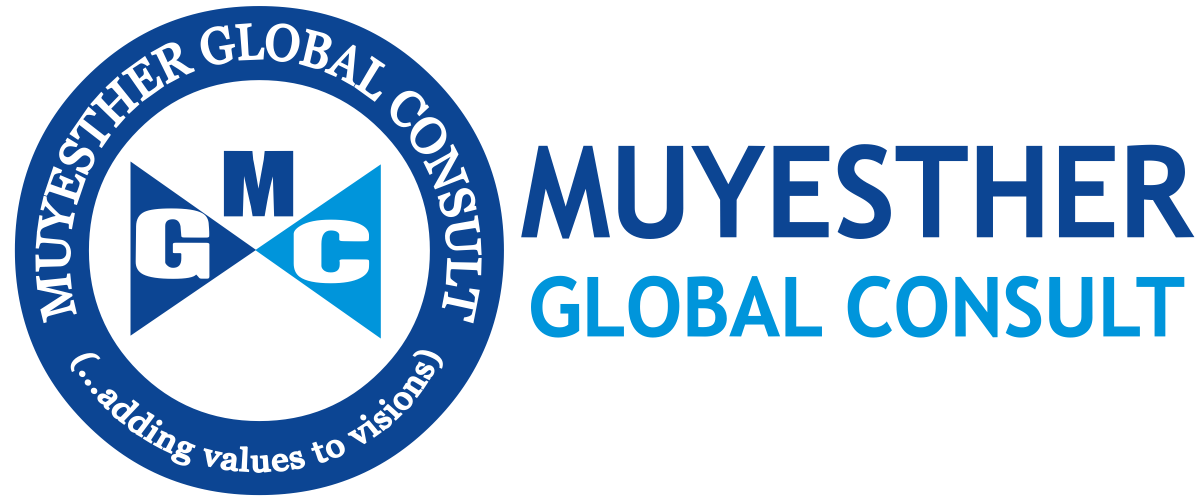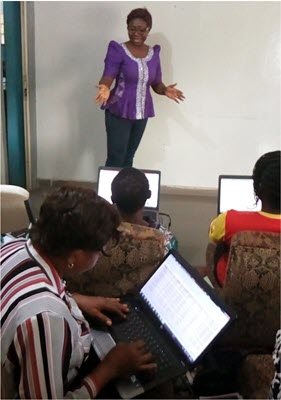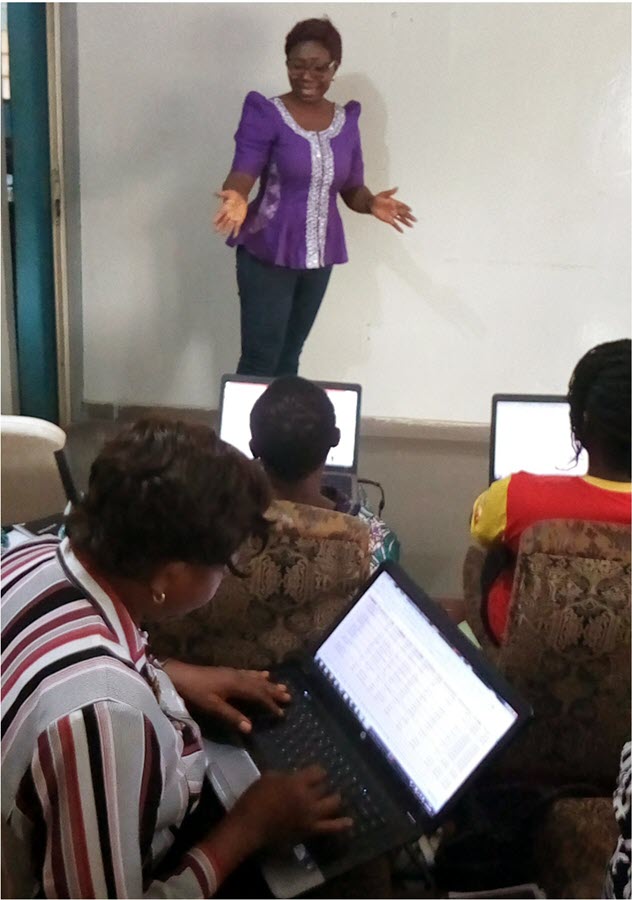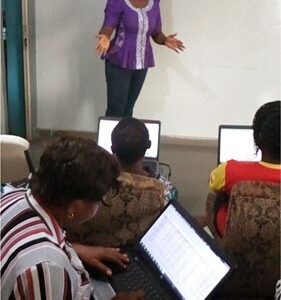Description
CATCH THEM YOUNG CLASS FOR PRACTICAL LABORATORY FOR ACCOUNTANTS
1.0 Background Information
As much as all professions are important, accounting profession is excellent and well known for its technicalities and professionalism. This is not just because all organizations (large or small) need the service of an accountant, but also that it is a noble profession, which makes the Institute of Chartered Accountants of Nigeria’s motor to be “Accuracy and Integrity”.
However, it is becoming rampant that many accountants lose their inherited recognition due to their inability to display expected professionalism at work. Despite the fact that the Institute of Chartered Accountants of Nigeria (ICAN) certifies a relatively large number of accountants every diet, it is quite disheartening that majority of these members lack practical experience required by most employers. While some members despise the Industrial Attachment programme/internship designed for the acquisition of practical experience, those who are willing find it difficult to get themselves engaged by audit firms – even when they are ready to get trained without any financial benefits.
Ameliorating these challenges, Muyesther Global Consult, in collaboration with Phisolad Management Consultants, designs Practical Laboratory for Accountants, which is aimed at introducing members of the profession to practical skill they will always need in the field – either as an employee or a self employed.
2.0 ABOUT CATCH THEM YOUNG
The training programme is designed to add values to various classes of certificate borne by numerous Graduates of accounting from higher institutions. Participants are introduced to various functions expected to be performed by an accountant in any organizations they might find themselves, and they are also taught how to go about it. This becomes added advantage to such participants who stand to favourably compete with their counterparts.
2.1 Training Courses
Only few people understand that the job of an accountant is not limited to preparation of account, but that it extends to tax management and other accounting services as well. This is why Muyesther designed the following training courses as a summary of the professional roles of an accountant
i. Practical Financial Accounting & Ethics (PFAE)
ii. Practical Tax Management (PTM) and
iii. Development and Practical use of Accounting Packages (DPUAP)
A. Practical Financial Management & Ethics (PFAE)
This course is divided into two modules – with each to attend to practical issues relating to Financial Accounting and Professional Ethics.
a. Module One – Book Keeping in Practice (PFAE01)
We understand that theoretical book-keeping has been properly dealt with in classrooms/lecture halls, an Accountant needs more than this theoretical understanding. There are several qualified Accountants who might not be able to practically differentiate between an invoice and a receipt, or practically open different ledgers/ books of account. Hence, this module will be used to train participants on:
- Practical Maintenance of Books of Account – opening of income ledger, expenses ledger, purchases ledger, creditors ledger, debtors ledger, stock ledger, cash book et cetera;
- Practical Handling of Source/Supporting Documents – receipts, invoices, waybills, payment vouchers et cetera.
b. Module two – Financial Accounting & Ethics in Practice (PFAE02)
This course is to enhance practical skill of accountants in terms of Financial Accounting and related Professional Ethics. Emphasis will be laid on the following accounting roles:
- Understanding Relationship Among Accounting Staff in Practice – account clerk, accounting officer, Accountant, Head of Finance et cetera;
- Accounting Policies in Practice – Income, Various classes of assets, various classes of liabilities, different classes of capital, going concern and post balance sheet events in practice;
- Practical Notes to Accounts -disclosures in practice, reporting in practice, bank reconciliation, error correction et cetera;
- Account Preparation in Practice – general ledger, trial balance, suspense account reconciliation, income statements, financial position et cetera.
B. Practical Tax Management (PTM)
It is practically the responsibility of accountants to manage the tax related issues of the organization that employ them, whereas many accountants lack practical experience in this field. This course is also divided into two modules, while each module is proffering solution to practical situations for accountants.
a. Module One – Practical Tax Deduction & Remittances (PTM01)
This course is designed, in practical terms, to show how an accountant is expected to be responsible for deduction and remittances of various forms of taxes in practice as follows:
- Tax deduction in practice – PAYE, VAT, WHT et cetera;
- Tax Remittances in practice – PAYE, VAT, WHY, CIT, EDT et cetera;
- Tax penalties and interest in practice – non-deduction, late remittances et cetera;
b. Module two – Practical Tax Filing with Tax Authorities (PTM02)
PTM02 is designed to practically demonstrate how taxes are filed with tax authorities – including the following:
- Practical Filing/documentation with state internal revenue service, filing forms, e-ticket, submission, office copy, et cetera;
- Practical Filing/documentation with FIRS – assessment forms, e-ticket, submission, office copy, e-filing, e-registration et cetera;
- Penalties & Interest/documentation on non-filing/late filing in practice – PAYE, VAT, WHT, CIT et cetera.
C. Development/Practical Use of Accounting Packages
The course is to practically expose participants to accounting packages they might have to work with in practice. Highlight of the two modules of the course are as described below.
a. Practical Development of Accounting Packages (DPUAP01)
As much as this might not be the role of an accountant per se, accounting packages cannot be maximally engaged without a reasonable knowledge of Microsoft excel. This enables participants to manipulate reports from the accounting packages to suit the organizational use. The course invariably becomes an added advantage for participants as it enables them to develop accounting packages – either for private use or for potential clients. Topics under this are as follows:
- Practical use of Table/Graphic Reporting- pie chart, bar chart et cetera;
- Advance Excel in practice – use of pivot tables, lookup, vlookup, pivot chart and other accounting related excel functions;
- Practical Report Analysis – daily/monthly/annual trial balance, debtors ledger, creditors ledger et cetera;
- Document security – file protection, sheet protection et cetera.
b. Practical Use of Accounting Packages (DPUAP02)
It is no longer news that manual accounting system is gradually giving way to electronic system. Most organizations now use electronic accounting system in the place of analysis books and ledger books. This is why this course is designed to expose participants to the following:
- Introduction to accounting packages – peachtree, sage 50, Quickbooks, Dacace et cetera;
- Company setup in practice – opening/documentation of company information, chart of accounts, login manager et cetera;
- Practical Update of accounting data – customer & sales, vendor & purchases, inventory & services, employee & payroll et cetera;
- Practical Generation of reports – general ledger, account receivables, financial statements et cetera.
2.2 Training Duration
The training is designed to hold for a period of three days – one day for each of the courses or for the period of time as may be agreed with the Department. These training days shall be agreed with the department as is considered convenient for the department and the students.
However, the training has been strategically structured to hold in modules as described above. The first and second modules are proposed to hold in first and second semesters respectively.
2.3 Targeted Participants
As much as the training will be of benefit to every accounting student, the most targeted participants are finalists – especially 400 level students of Universities and HND 2 students of Polytechnics. This is because they are those who are the closest to labour market, who really need to demonstrate their relative practical skill in the field. The competence or otherwise of such students as would-be graduates from the department has a long way to tell about the institution at large.
2.4 Benefit to Participants
i. Practical experience in Financial Accounting, Tax Management and Development/Use of Accounting Packages;
ii. Opportunity to meet Professional Mentors/Colleagues in Practice;
iii. Building the confidence of participants at accounting job interview;
iv. Linking participants to potential employers;
v. Certificate of participation to be issued to each participant.
2.5 Benefits to the Department/Institution
i. The training is specifically designed to add values to the certificates of participants by exposing them to practical issues which they tend to meet in the field. Invariably, graduates from the school will become more competent in performing their accounting jobs, and in no time, employers will prefer to recruit products from the Institution.
ii. Financial benefit, which shall be an agreeable percentage of the total income realizable from the training exercise.
3.0 Stakeholders Responsibilities
The two main stakeholders for the training exercise are the Department of Accountancy and Muyesther Global Consult. The respective responsibilities are stated below:
3.1 Responsibilities of the department
i. It is the responsibility of the department to provide a conducive training venue with good cross ventilation, lightening and other facilities as may be considered necessary for the training.
ii. The department shall also be responsible for the creation of awareness and mobilization of the students for the training. This is proposed to be done by allowing representatives from our firm to be available for short presentation to sensitize the students so gathered by the department.
3.2 Our Responsibilities
i. Provision of competent instructors/consultants who have been in practice for many years, and who will be able to impact the students with practical skill;
ii. Collection of both registration and training fee;
iii. Issuance of certificate of participation to each participant.
4.0 Registration/Training Fee
Each participant is expected to pay training fee as may be agreed with the department.
The training fee is expected to be fully paid, and only candidates who have made full payment will be allowed to participate in the training.
Meanwhile, we are equally disposed to a negotiation with the department (School) as is considered necessary for the smooth running of the practical training.
Payment for the registration could be made using any of the following available modes of payment:
i. Pay to bank;
ii. Online payment or
iii. Payment at the training center.
5.0 Continuity of the Training
Seeing that the school turns-out graduates each calendar year, the training is proposed to hold at least twice in a year. Module one is proposed to hold in the first semester while module two will hold in the second semester.
Meanwhile, we recommend the training to hold at a period that is close to the end of each semester, unless the department finds that to be extremely difficult. The recommendation is in a bid to keep the practical experience fresh with participants as they are finally released to join the labour market.
6.0 Certificate of Participation
Each participant is to be issued a certificate of participation. However, only candidates who have fully completed the training courses as highlighted in the course outline shall be issued the certificate.
7.0 Conclusion
Information about other services provided by the firm, existing clients, brief curriculum vitae of the management team and other corporate information are contained in the office profile, which shall be made available on request.
We strongly believe that the project will have positive effects on all stakeholders including participants, the department, the school, public/private sectors that will employ those participants, which will invariably transcend to the Nation at large.
Should you require further information, kindly Contact Us.
Thanks.




Reviews
There are no reviews yet.